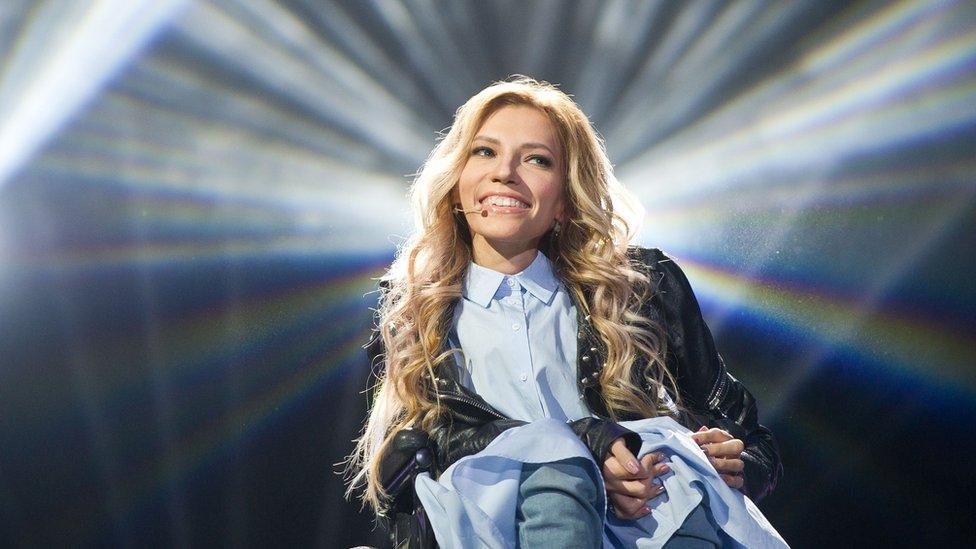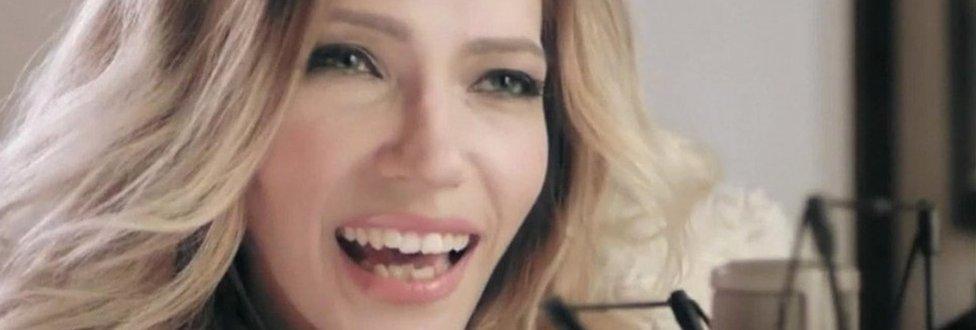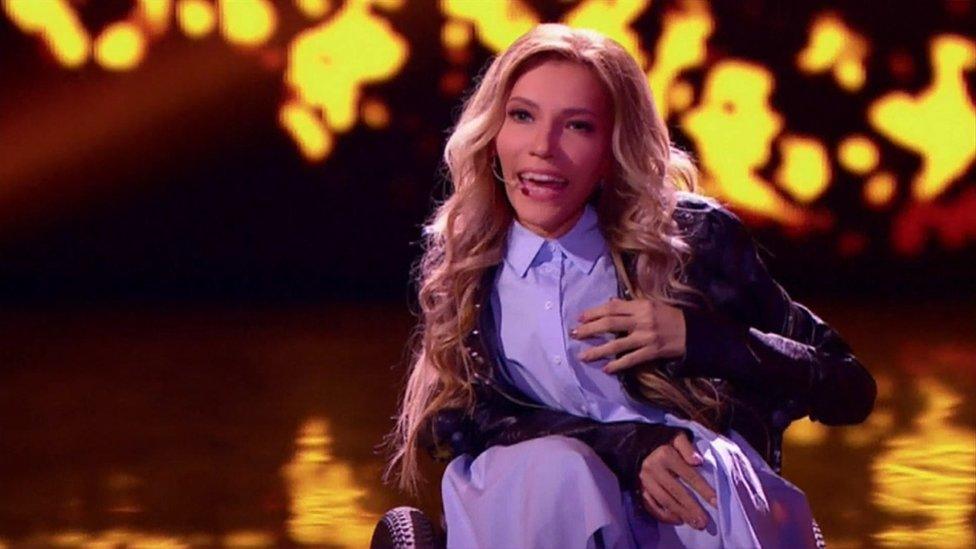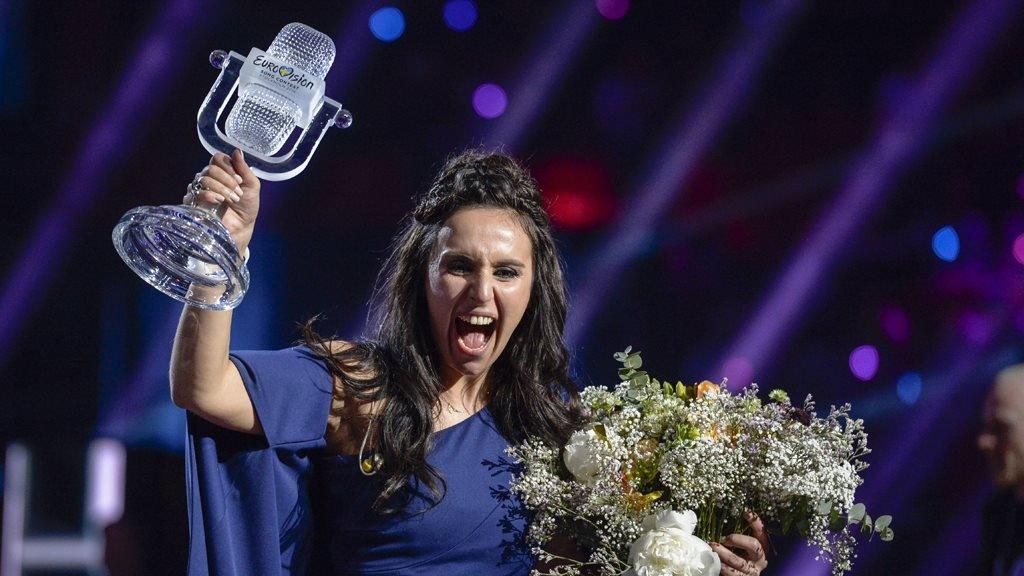Eurovision: Russia rejects offer for Julia Samoilova to perform 'via satellite'
- Published

Russia's Channel One said it would be "strange" for Julia Samoilova to perform via satellite
Russia's state-controlled television has rejected an offer from organisers of the Eurovision Song Contest to allow their nation's contestant to perform via satellite link.
Channel One said that the offer for Julia Samoilova to perform in the event in Ukraine remotely was "strange".
Samoilova has been banned from Ukraine, which hosts this year's contest, for entering annexed Crimea via Russia.
The Kremlin had called for a rethink of Ukraine's decision.
"We consider the offer of remote participation strange and reject it," Channel One said in a statement on Thursday quoted by Tass news agency, external, adding: "It completely contradicts the very essence of the event."
The offer to perform in the competition via satellite link is a first in Eurovision's 60-year-history, the European Broadcasting Union (EBU) said, adding that the contest had to "remain free from politics".
Samoilova is due to take part in the second semi-final of the song contest.
'Celebrate diversity'
Jon Ola Sand, executive supervisor of Eurovision, earlier said that organisers were talking to Ukrainian authorities "with the ambition to have all artists present" in host city Kiev for May's contest.
He said: "It is imperative that the Eurovision Song Contest remains free from politics and as such, due to the circumstances surrounding Julia's travel ban, we have felt it important to propose a solution that transcends such issues.
Frank-Dieter Freiling, chairman of the governing body of the Eurovision Song Contest, said he hoped Ukraine would not enforce the travel ban and would instead "find a solution in line with the contest's slogan, celebrate diversity".

Who is Julia Samoilova?

Samoilova was selected just one day before the 13 March deadline for nomination
The singer-songwriter was born in April 1989 in Ukhta, Russia
Her song Flame is Burning was composed by Leonid Gutkin, who also produced Russia's 2013 and 2015 entries
The Russian entrant has been in a wheelchair since childhood, suffering from spinal muscular atrophy: a neuromuscular disorder causing muscle wastage
She was a 2013 finalist in Russia's X Factor competition and performed at the opening ceremony to the 2014 Sochi Winter Paralympics

Samoilova has said she was "not upset" by Ukraine's decision.
She told Channel One state-controlled television, which selected her as Russia's contestant with her song Flame is Burning, that she did not understand why Ukraine saw "some kind of threat in a little girl like me".
"I will keep going. I somehow think that everything will change," added Samoilova.
The 27-year-old singer performed in Crimea, annexed by Moscow in 2014, in 2015.
Ukraine considers the visit illegal and has refused to issue Samoilova a visa.
Kremlin spokesman Dmitry Peskov said: "The decision from our point of view is absolutely unfair, it's unfortunate. And we hope all the same that it will be reconsidered."
He said the decision to ban Samoilova "seriously devalues the upcoming contest".

Follow us on Facebook, external, on Twitter @BBCNewsEnts, external, or on Instagram at bbcnewsents, external. If you have a story suggestion email entertainment.news@bbc.co.uk, external.
- Published22 March 2017

- Published13 March 2017

- Published15 February 2017
